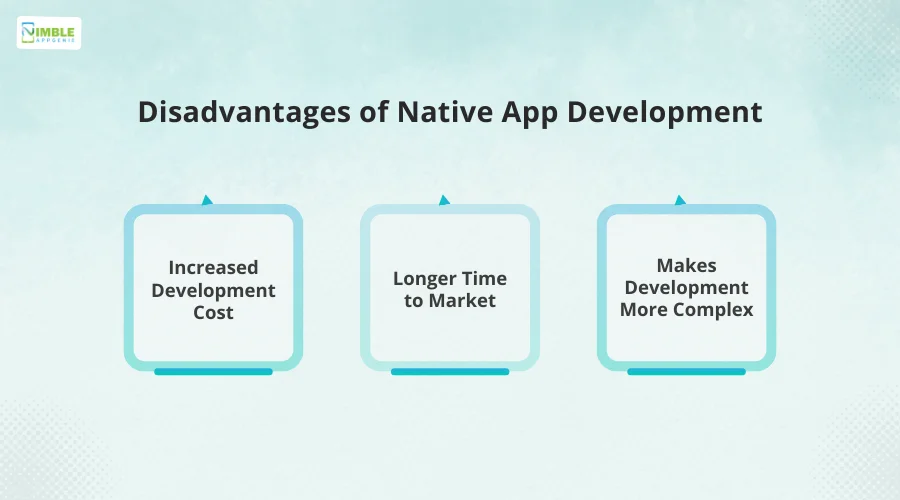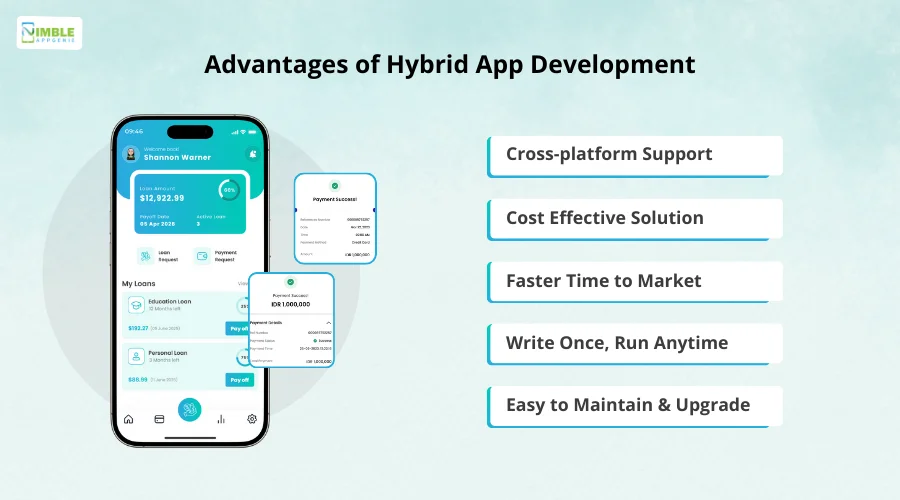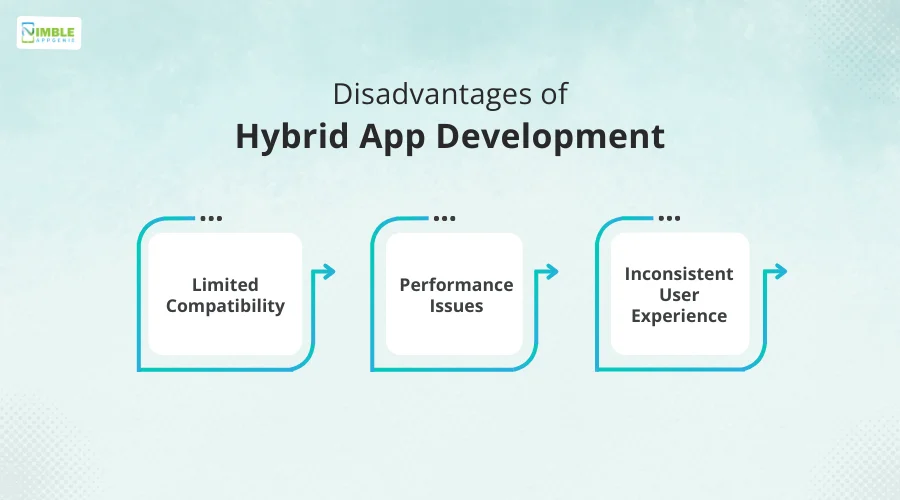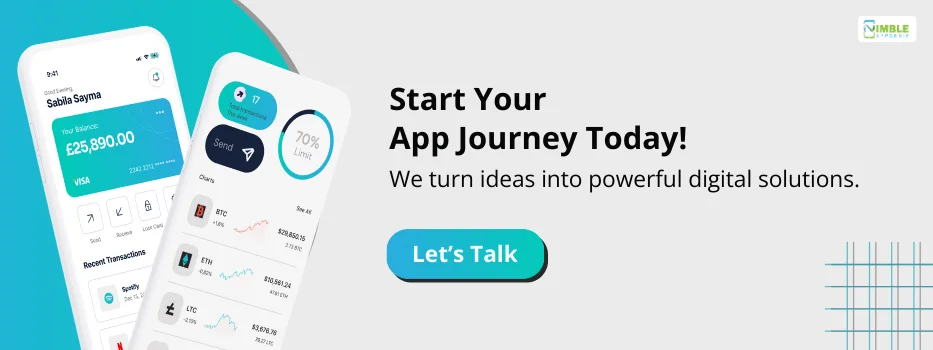Mobile app development has come a long way regarding approach, types, and technologies. Gone are the days when you had limits to what you could do in terms of functionalities, reach, and development methods.
Today, you can build specific apps for dedicated audiences or reach the masses with a single app. This is because the choice of operating systems and platforms keeps changing among users.
You need to choose the right type of app development to ensure that you reach the right audience.
Native and hybrid apps are two of the most popular types of applications that people usually go for. However, it often becomes a point of confusion where they are not sure if a native app will be a suitable choice for them or if they should go for a hybrid one.
If you, too, are unable to make the decision and want to understand the core differences between a native app and a hybrid app, then this is the post for you. In this one, we are going to explore everything about native apps vs. hybrid apps.
Types of Applications that You Can Build for Your Business
Before we dive into the differences between the types of applications that you can develop, let us take a look at all of them and understand what they are about.

► Native Apps
These applications are built individually for dedicated operating systems. With a native app, you can develop a highly optimized app that is closely compatible with the device’s features and resources, allowing you to deliver a seamless user experience.
► Hybrid Apps
These are highly flexible applications that work with different operating systems without having to be developed separately.
It uses a single codebase for all the platforms that you want to target. By taking the hybrid approach, you can easily build an app for different platforms without spending a lot of money.
► Web Apps
These are highly functional browser-based applications that deliver an app-like experience to the user without them having to install a dedicated application.
With a few tweaks here and there, you can go for web app development that is as optimized as a native app. There are two types of web apps that people usually opt for –
► Progressive Web Apps
These web applications use modern capabilities, enabling features like offline access, push notifications, hardware integration, and more.
► Responsive Web Apps
As the name suggests, these web applications are highly responsive and can adjust their layout based on the screen size of your device.
All these types of applications are useful for the users in one way or another. However, this also creates massive confusion about what route to take and which one to identify.
The majority of users are confused between native apps and hybrid apps, as web applications are generally not the first choice for every user.
That is because web applications, though they can get the job done, certainly lack a few features and functionalities that native and hybrid solutions can deliver.
This is also the reason why we will be drawing a comparison between native and hybrid apps in this post.
Native App Development: Definition, Advantages & Disadvantages
As mentioned earlier, native app development is platform-specific app development that allows you to build applications specifically made for an operating system.
Code for native application development is specifically written for one operating system so that it can seamlessly integrate with the hardware that supports the OS.
For instance, if you build a native application to target Android users, your code will not work for iOS users and vice versa. Native applications also do not work in web browsers.
Native app development uses platform-specific tools and programming languages to build the application.
Usually, a Java Development Kit is used for Android app development, and an iOS SDK or Swift is used for developing a native iOS application.
This approach uses dedicated design guidelines that are specific to the platform so that the final application can inherit existing device features and interact well with the hardware components.
Advantages of Native App Development
Using the native app development approach offers several advantages in both the development process and the final application process.
These advantages include –
-
Highly Optimized
Native apps are highly performance-oriented and optimized for the best performance. This is because the code is written as per the requirements of the environment in which it will work. This makes the entire performance more suitable and optimized.
-
Ease of Integration
Since native applications are built specifically for an operating system, they offer seamless integration with the native device features and functionalities. This integration adds to the convenience of the users, making the experience smoother and smoother.
-
Advanced Security Measures
The security architecture for native apps has access to device security features, which strengthens the security of your application while keeping it intact on your device.
-
Intuitive Experience
Native compatibility allows you to craft an intuitive user experience that not only blends into your device features but also makes it easier for the user to get used to the app navigation and features.
-
Access the Latest Features
Updates to these apps are exclusive and can be rolled out irrespective of other operating systems; hence, rolling out new features is faster and easier in native app development.
Disadvantages of Native App Development
While there are different upsides to choosing native app development, there are some drawbacks too.

These disadvantages are –
-
Increased Development Costs
The app development cost is significantly higher as it requires different resources for different platforms. Not to mention, it requires twice the budget if you plan to build native apps for both Android & iOS.
-
Longer Time to Market
Since there are two applications that you have to build (minimum) to capture the smartphone market, it will take longer. This ends up delaying your application’s release.
-
Makes Development More Complex
The development process is complex as two codebases are written, which in itself is time-consuming. Application maintenance becomes further complicated.
An Overview of Hybrid App Development
On the other hand, when we talk about hybrid mobile app development, these are more pocket-friendly and easier-to-manage applications that use a single codebase.
Unlike native app development, which targets a specific operating system, hybrid applications can be used on different platforms.
The codebase prepared once can be used to run the applications on multiple operating systems.
What this means is that you can code the entire application only once and then deploy it to run on both Android and iOS. The OS-friendly nature of hybrid applications makes them cost-effective, easier to deploy, and less time-consuming.
Hybrid app development usually uses the Ionic framework, which consists of web technologies including HTML, CSS, and JavaScript. Other than these, a hybrid app can be built using React Native and Xamarin.
Usually, if the application is built properly, an average user might not even identify if the application uses a hybrid framework.
However, there are certain limitations to which hybrid apps can interact with the hardware and native resources of the devices and operating systems.
Advantages of Hybrid App Development
As it is clear from the above description, hybrid app development brings along a series of advantages that make it a viable choice for several users.

Check out the advantages below –
-
Cross-Platform Support
The biggest advantage that Hybrid app development offers is that it offers cross-platform support, which means a single developer can build an app for multiple operating systems. This saves a lot of time and resources.
-
Cost-Effective Solution
Since the resources required to build the application are limited to a single team, and the final product targets a wider audience, it is surely a cost-effective solution for any application.
-
Faster Time to Market
Applications can be released faster for multiple operating systems, as the time to develop the app is relatively shorter than building dedicated applications for different platforms.
-
Write Once, Run Anywhere
Another advantage of using Hybrid app development is that it follows the write once, run anywhere approach for code. What it means all you have to do is invest in a single codebase that can be used to deploy builds, ready to run on different platforms.
-
Easy to Maintain & Upgrade
Maintenance of a hybrid app becomes easier as all the changes and all the troubleshooting have to be done once and can be implemented by a single team, making the upgrade easier to roll out.
Disadvantages of Hybrid App Development
These advantages are highly favorable for any user looking to build a hybrid application that reaches the maximum number of users.
However, it certainly comes with disadvantages. What are these disadvantages? Let’s find out!

-
Limited Compatibility
For any app to be completely compatible, it requires seamless integration with the device resources and hardware like cameras, gyros, and other sensors. However, a hybrid app has limited compatibility as it is unable to make the most of available resources.
-
Performance Issues
Applications built on a hybrid framework can come across a few performance issues when compared to native apps, as they are more seamlessly integrated with the OS than native apps.
-
Inconsistent User Experience
Hybrid applications often have UI inconsistencies if not developed with precision. These inconsistencies can be seen in navigation, default features, and more.
Native Apps vs. Hybrid Apps: How to Make Your Decision
After going through all the advantages and disadvantages of both native and hybrid applications, you might have an idea of the key differences between them. One is more performance-oriented, while the other is more focused on reducing cost and time to market.
Here is a clear comparison table between the two, which will help you identify the differences more clearly.
| Native Apps Vs. Hybrid Apps | ||
| Differentiating Factors | Native Apps | Hybrid Apps |
| Development | Requires platform-specific tools and programming technologies. | Uses a combination of native and web technologies to offer flexibility. |
| Performance | Highly performance-oriented with ease of optimization according to device & OS. | Decent performance, might vary from OS to OS, and can show higher battery consumption. |
| Functioning | Works seamlessly with internal hardware and offers smooth and robust functioning. | Offers significant performance but might come across lags and inconsistencies. |
| Compatibility | Highly compatible, but only with the dedicated operating system on which it is built. | Has cross-platform compatibility, allowing a single codebase to run easily on multiple operating systems. |
| Cost of Development | Since Native apps are built individually for each OS, it costs on the higher side of the spectrum. | Hybrid apps can save you significant costs by allowing you to develop a single codebase that can be implemented on any OS. |
| Security | Native apps have stronger security features as they can utilize native device features better. These require a dedicated device to be accessed. | Hybrid apps, on the other hand, offer decent security but lack in different aspects. For instance, the app is not limited to the device it is being used on, as it can be accessed via a browser too. |
| Maintenance Requirements | Individual platforms require dedicated maintenance and updates, which increases the maintenance cost and requirements. | A single pool of resources is enough to maintain your hybrid app as the core codebase is singular. This means fewer resources and fewer complications. |
To sum it up,
- Native app development is best for projects that are performance-oriented and need complete access to the hardware and software of the respective device.
- Whereas, hybrid app development is highly suitable for a more balanced application with both native and web-based features.
Hybrid App vs Native App: How Nimble AppGenie Can Help You Decide?
With all aspects of these approaches explained, you can now decide if your application needs Native app development or a Hybrid will work.
This directly brings the conversation to the understanding of the project. The better your developers understand your requirements, the better they can suggest a solution.
But that won’t happen unless you have an experienced team of developers with you. And that is where Nimble AppGenie can save the day! With decades of experience in mobile app development services, our experts are the perfect fit for any project you plan to execute.
Schedule a consultation with one of our experts and share your vision to understand how we can approach it.
More importantly, they can give you deeper insights by comparing hybrid apps vs native apps. You can accordingly take the decision and make the most suitable decision.
Conclusion
Native vs. Hybrid mobile apps have been an ongoing debate that keeps circling one thing: the need for a project. Both of these types have their uses, advantages, and disadvantages.
While Native apps help you make the most of an operating system’s capabilities and resources, Hybrid apps offer cross-platform support to help you deploy your application to different platforms faster. However, Native apps are costly, and Hybrid apps have a few performance limitations.
At the end of it all, it comes down to you and what type of compromises you are ready to make. The decision to choose the right type of mobile app also depends on how your development team guides you. Hence, you should be wise enough to choose the right team of experts.
FAQs
There are three types of applications that people generally opt for Native App, Hybrid App, and Web App. However, web apps are more limited to websites that plan to soft-launch their services on a mobile app but do not have enough resources to deploy an app. When it comes to mobile apps, Native vs. Hybrid apps are the only debate.

Niketan Sharma, CTO, Nimble AppGenie, is a tech enthusiast with more than a decade of experience in delivering high-value solutions that allow a brand to penetrate the market easily. With a strong hold on mobile app development, he is actively working to help businesses identify the potential of digital transformation by sharing insightful statistics, guides & blogs.
Table of Contents






No Comments
Comments are closed.